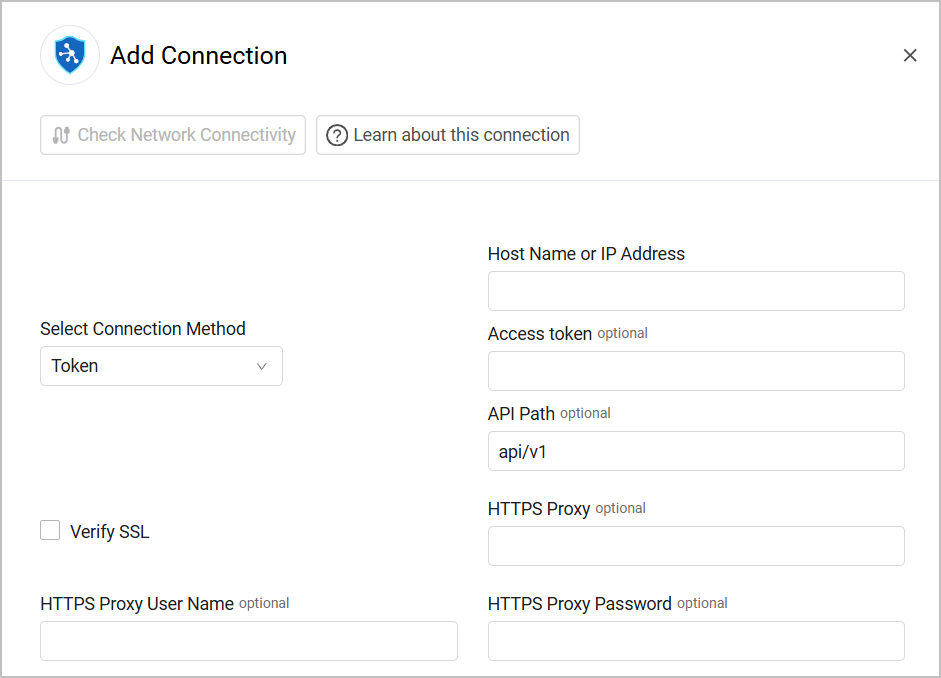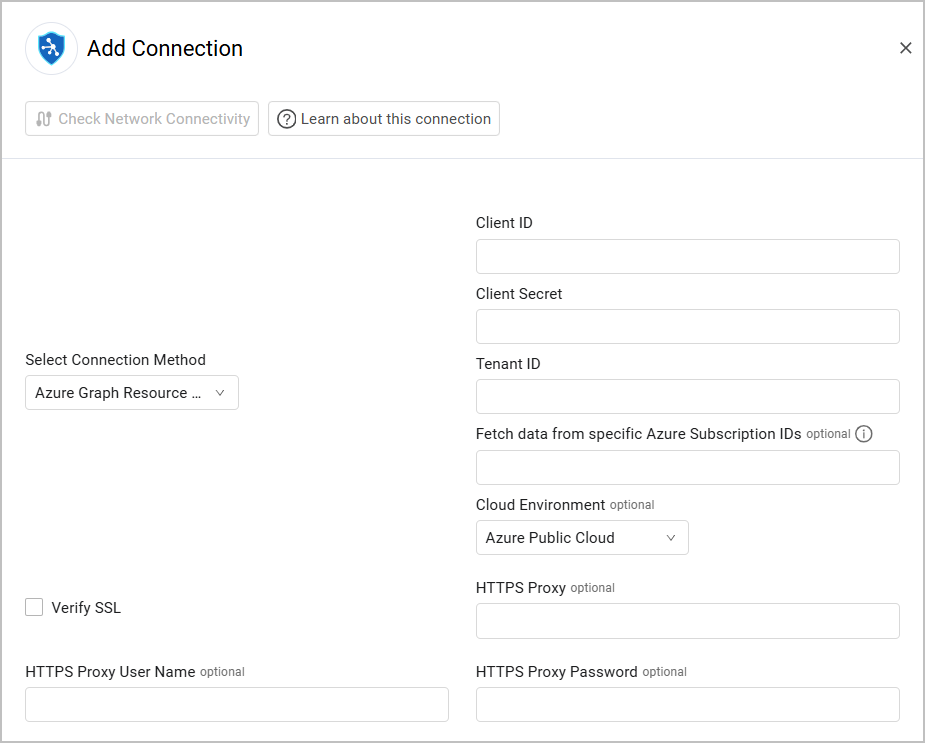Azure Defender for IoT
Azure Defender for IoT is a solution for asset discovery, vulnerability management, and threat detection for Internet of Things (IoT) and operational technology (OT) devices.
Asset Types Fetched
- Devices, Aggregated Security Findings, SaaS Applications, Networks, Databases, Network Services
Before You Begin
APIs
Axonius uses the following APIs:
Required Ports
Axonius must be able to communicate with the value supplied in Domain via the following ports:
- TCP port 443
Authentication Methods
You can authenticate the adapter using either a Token or Azure Graph Resource Manager. See the Parameters section for more information.
Parameters
Required Parameters
- Host Name or IP Address - The hostname or IP address of the Azure Defender for IoT server that Axonius can communicate with via the Required Ports.
- Select Connection Method - Select between Token and Azure Graph Resource Manager.
Authenticating with a Token
- Access token (required) - An access token associated with a user account that has permissions to fetch assets.
- API Path (default: api/v1) - You can specify a customizable API path instead of the default path.

Authenticating with Azure Graph Resource Manager
When this authentication method is selected, the adapter uses Azure Resource Graph to run queries to retrieve information about IoT Devices.
- Client ID, Client Secret, and Tenant ID - See Microsoft Azure Parameters for instructions on how to configure these.
Note
The Client ID must have Reader access to the specific subscriptions that you want to fetch IoT Devices from.
- Fetch data from specific Azure Subscription IDs (Optional) - Enter a list of comma-separated Subscription IDs to fetch data from, or leave this field empty to fetch from all subscriptions.
- Cloud Environment (Optional) - Select the Azure cloud environment to fetch from.

Optional Parameters
-
Verify SSL - Select whether to verify the SSL certificate offered by the value supplied in Host Name or IP Address. For more details, see SSL Trust & CA Settings.
-
HTTPS Proxy - A proxy to use when connecting to the value supplied in Host Name or IP Address.
-
HTTPS Proxy User Name - The user name to use when connecting to the value supplied in Host Name or IP Address via the value supplied in HTTPS Proxy.
-
HTTPS Proxy Password - The password to use when connecting to the value supplied in Host Name or IP Address via the value supplied in HTTPS Proxy.
-
For details on the common adapter connection parameters and buttons, see Adding a New Adapter Connection.
Advanced Settings
Note
Advanced Settings can either apply for all connections for this adapter, or you can set different advanced settings and/or different scheduling for a specific connection, refer to Advanced Configuration for Adapters.
- Devices to exclude by asset name (optional) - Enter a comma-separated list of device asset names to exclude.
- Fetch Vulnerabilities - Select to fetch vulnerabilities and attach them to their matching assets.
Classify Azure IoT Defender Assets as Axonius Assets (Optional)
Note
This setting is not supported when the Azure Graph Resource Manager connection method is used. It's only supported when Token is used.
- Enable custom asset fetch rules - Enable this option to select specific Azure IoT Defender assets and define the Axonius assets types they will be fetched as.
- Azure IoT type to fetch as Network Devices assets - Select between or both Switch and Router.
- Azure IoT type to fetch as Network Services assets - Select between or both Internet and Multicast/Broadcast.
- Azure IoT type to fetch as Databases assets - Here you can select only DB Server.
Note
To learn more about Adapter Configuration tab advanced settings, see Adapter Advanced Settings.
Updated 25 days ago
